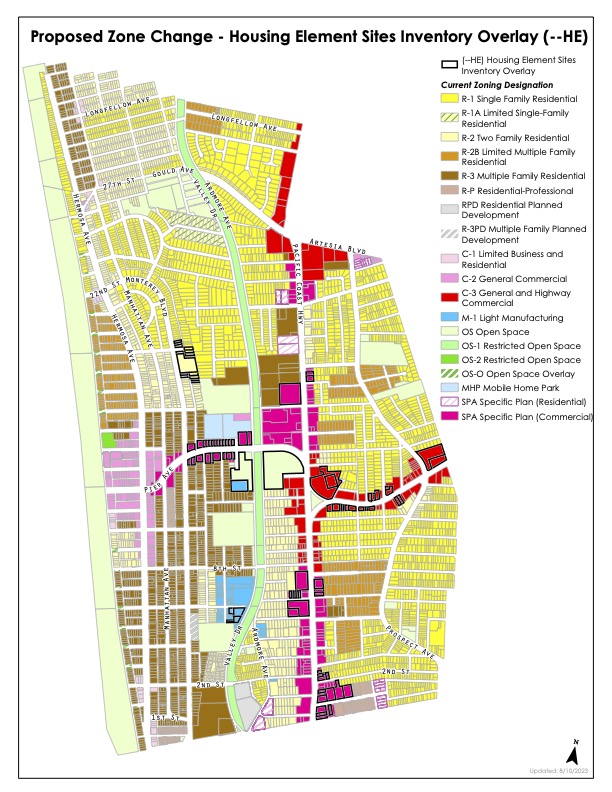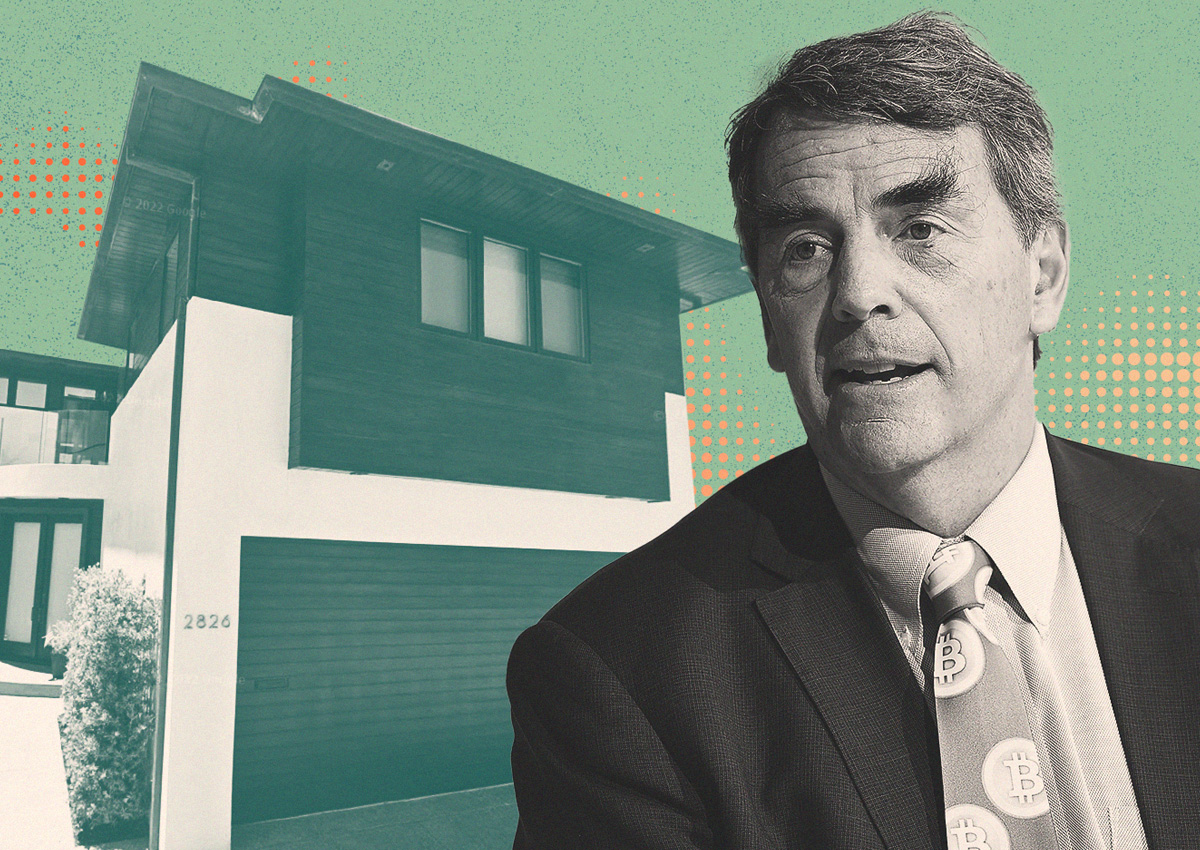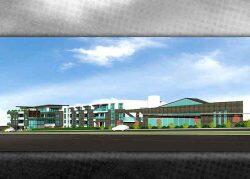The small, exclusive South Bay city of Hermosa Beach has struggled in recent years to meet state demands for new housing, so its City Council has approved a unique policy to spur more affordable development.
Last month the council voted 3-2 in favor of a land value recapture program. It might be the only city in the state to try this strategy, according to Hermosa Beach city officials and analysts who drafted the policy.
The strategy comes as the city works to gain approval from state regulators for a plan to build more housing, called a “housing element.” The city is currently out of compliance, triggering a penalty known as builders’ remedy which allows developers to bypass local zoning and other rules if a project has a certain threshold of affordable units.

Land value capture is a policy where a city government seeks to recover and reinvest land value increases, according to a definition from the Organization for Economic Co-operation and Development. In the case of Hermosa Beach, the program aims to capture value in commercial districts with older buildings deemed suitable for redevelopment, said Carrie Tai, the city’s community development director. These redevelopment districts were rezoned in the fall from commercial to mixed use, which would allow residential development. Properties zoned for this program are located on parts of Pacific Coast Highway, Aviation Boulevard and some sections of Pier Avenue, one of the city’s main thoroughfares.
Within these areas, developers who build market-rate housing will be required to pay $76 per square foot for development of four units or fewer. Those developing five units or more will pay $104 per square foot.
The concept is that developing land increases its value, and the program “recaptures” some of that value. The revenue would be earmarked to an Hermosa Beach city fund to support development of affordable housing. Tai said it also might go to an affordable housing trust organized by the South Bay Cities Council of Governments.
Starting from zero
Tai asserted that the program aims not to be intrusive. Land value recapture would only be applied to new residential development in the zones designated by the city.
“Currently, there are zero affordable housing units in the city,” Tai said of Hermosa Beach. The median rent is $5,500, according to Zillow, about $3,500 more than the national median.
“There has not been a policy to encourage and incentivize affordable housing.”
With a land area of just 1.4 square miles, the state expects the city to build about 558 affordable units.
Developers who build affordable housing on properties in the designated zones are exempt from the land value recapture fee.
“It’s almost a double bonus,” Tai said. “If they build a mixed-income property — market rate and a certain amount affordable — they will not have to pay a fee and they also benefit from the state’s density bonus program, enabling them to build more units than they’d previously be allowed.”
Hermosa Beach officials decided to try a land value recapture program because they believed it wouldn’t penalize developers outside the designated zones. They also believed its carrot-and- stick structure would spur development.
Jon David, an Hermosa Beach resident and a commercial property owner on Pier Avenue, forecasts that the city will fumble. David placed his project to build two residential units above a commercial space on Pier Avenue on hiatus because of the new program.
“They’re supposed to rezone and unlock housing in Hermosa Beach, but placing this fee makes projects infeasible,” he said.
David forecast that the program will fail in raising revenue to build affordable housing because it focuses on only three specific areas. Density bonus incentives won’t work in this context, he added, because many of Hermosa Beach’s sites are too small to qualify for consideration of a density bonus.
In response to David’s criticisms, Tai said that Hermosa Beach’s two-tiered fee structure takes into consideration smaller developers. Projects too small for density bonus could pay the $74 per square foot fee. She also contends that an analysis of land value recapture prepared by Kosmont Companies, an economic development and real estate consulting firm, forecast a likely return on investment for the program.
The land value recapture fees will go into effect when the city’s housing element is certified by the state; Tai said the city hoped for a certification in April.
Policy experts
The program has been critiqued by prominent policy wonks such as Chris Elmendorf, a law professor with a focus on land use at the University of California, Davis. In December, he posted a tweet on the social media platform X, that a land value recapture will sabotage development. “(California) cities that want to capture land value can use a parcel tax to do it,” he wrote.
Land value recapture policies are often discussed in California planning circles, said Sonja Trauss, executive director of YIMBY Law, a Bay Area-headquartered legal advocacy group that has sued the cities of Los Angeles and Redondo Beach over housing policy.
“In discussing impact fees and inclusionary zoning, the concept of land value capture is always brought up,” she said. However, it has rarely been focused on a specific program such as affordable housing.
However, the policy is gaining interest throughout the United States, and is currently in wide discussion by Detroit politicians to cure the city’s blight, according to a recent story in Vox.
Read more



